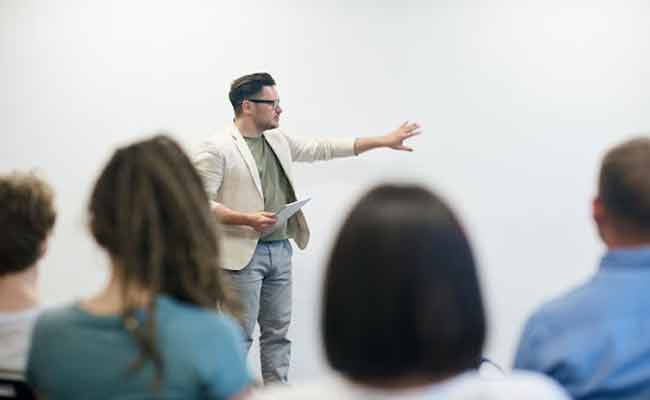How To Learn Effectively Or How To Become An Effective Learner
Hello friends how are you all? Today we are going to talk about Tips on How To Learn Effectively Or How To Become An Effective Learner? There are numerous learning strategies: repetition, alternating different types of tasks, asking questions, combining different formats of learning material, and keeping notes. In this article, we’ll try to summarize some strategies and compile step-by-step instructions that will help you learn effectively.
How To Learn Effectively Or How To Become An Effective Learner
Before Class
Let’s say you have a lesson tomorrow or you plan to study on your own. The day before, we recommend applying a strategy of combining different learning formats.
According to the cognitive theory of multimedia learning, a person perceives new material better if he combines visual and auditory stimuli. So look for videos, animations, or even online courses on the topic of the lesson, consider the relevant pictures in the textbook. Prefer schematic rather than detailed images – they are easier to perceive and comprehend.
If you have the time and desire, review the textbook or presentation in advance, write down the main ideas and questions. Even a short preparation will help to navigate the new material better. In addition, this means that it will be easier for you to listen thoughtfully to the teacher and make quality recordings during the lesson. After all, you already know approximately what we are talking about!
The same applies to independent study. Again, review the training materials in advance; it will facilitate their perception.
During The Lesson
We recommend keeping a synopsis. You should write it yourself, not type it on a computer. In addition, write down new material in your own words. Yes, it’s even more important than doing homework, which is why many students delegate it to the paper writing service MasterPapers.
Try to analyze new material and write down only the most important. This way, you will better process it and make better notes. In addition, they will be a great tool for repetition!
Do not write everything down in a row for dictation or rewrite the pages of the textbook. If you do not have time or do not understand, do not hesitate to ask clarifying questions. Try different outline formats and choose the one that best suits your current lesson.
After Class
View notes. Write down keywords, write some questions for self-examination and generalization. The Cornell Notes system helps to organize the synopsis with keywords and generalizations easily.
In the evening of the same day, review the synopsis. If appropriate, reorganize the records in the form of a diagram or mind map. For example, your topic is cell organelles. Each organelle is related to the others. In this case, you should use a mind map because it allows you to show the connections between individual organelles.
After processing the synopsis, proceed to self-examination – testing. We have already noted that you can ask questions yourself or use ready-made ones from third-party sources. If you’re overwhelmed by an extremely big academic load – prioritize and let services like MasterPapers help you deal with the more repetitive and boring tasks.
Tests are usually seen as a means of assessing and testing knowledge. But it has been proven that tests are also a powerful learning tool.
Research testing as a learning strategy. One group of students re-read the material, and the other took the test. One week later, the students in the second group remembered 50% more.
Testing as a learning tool has two significant advantages. First, the testing process itself is a recollection of the material, and therefore a repetition and memorization of information.
Second, tests work like a compass. They help to identify gaps in knowledge and determine what to teach next. You can read about other benefits of testing in our article “How testing promotes effective learning.”
Abstract processing and testing fix new material in memory. As a result, you have a foundation to perform more complex tasks: analyze, solve problems and make hypotheses.
What’s Next?
Then ask deep questions about the material and look for answers. They will help to establish a connection between new information and previous knowledge. And more – to apply knowledge in practice.
Here are some examples of such questions: why? Why exactly this way and not vice versa? What is the reason behind this material? And what about other things? How is this process different from another? What are their common and distinctive features?
When working with any type of test or question, first answer it yourself, only then look for the correct answers. So you have to “find” the right answer in your own knowledge. This will strengthen them.
For example, you need to remember the capital of Slovenia. So you start sorting through other capitals, trying to find the right one. Even if you do not remember the capital of Slovenia, you will repeat other countries and cities. This way, knowledge of geography will be better fixed in memory.
So, if you make an effort to solve it first and only then see the right answer, you will remember the material better and longer. Please note: otherwise, this strategy will not work. Then the training will turn into a re-reading of questions and answers.
Some of the student-focused services empower this process by giving more free time to students. 2021′s Best Essay Writing Services in the U.S. – The Top 5 are the best student-focused platforms, boosting the studies of numerous learners.
To Sum Up
If you approach learning more consciously, then the effectiveness of your remembering important materials will skyrocket. So try out our tips and become a better student!
BIO
Everyone knows that Stan Wright is the man! You’ll find no better expert across the subject matters Stan specializes in. Helping students succeed in college since 2015, Mr. Wright is someone you can trust with writing your essay 110%. “What a fantastic writer and an affable lad!” – says one of Stan’s customers, pretty much summing up his whole professional attitude and a positive, yes-can-do demeanor.




